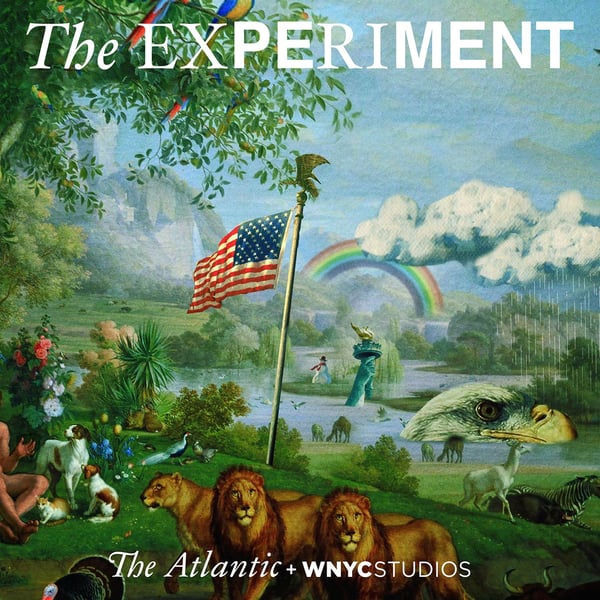Cram Your SPAM
The Experiment
The Atlantic and WNYC Studios
4.5 • 2.8K Ratings
🗓️ 10 February 2022
⏱️ 46 minutes
🧾️ Download transcript
Summary
SPAM is at the center of one of the longest and most contentious labor battles in U.S. history. In 1985, workers at the Hormel Foods plant in Austin, Minnesota, went on strike, demanding better working conditions and stable wages. Generations of meatpackers had worked at the plant, some for most of their lives—and that gruesome, difficult work afforded them a sustainable, middle-class life. So when that way of life was threatened, they fought back. SPAM boycotts spread to cities and towns around the world. The strike went on for almost two years, pit neighbor against neighbor, and turned violent; the National Guard was called in to protect those who crossed the picket line. In the end, the strike is a Rorschach test: either a lesson in what is possible when workers unite, or a cautionary tale about biting the SPAM that feeds.
This episode is the second in a new three-part miniseries from The Experiment—“SPAM: How the American Dream Got Canned.”
A transcript of this episode is available.
Be part of The Experiment. Use the hashtag #TheExperimentPodcast, or write to us at [email protected].
This episode was produced by Gabrielle Berbey and Julia Longoria. Editing by Kelly Prime, Emily Botein, and Katherine Wells with help from Jenny Lawton and Scott Stossel. Fact-check by Michelle Ciarrocca. Sound design by David Herman with additional engineering by Joe Plourde. Transcription by Caleb Codding. Special thanks to Peter Rachleff and Philip Dawkins.
Music by R Mccarthy (“Maria, Just,” “Big Game,” “Fine,” and “Melodi 2”), Parish Council (“Museum Weather” and “Marmalade Day”), Column (“「THE ART OF FUN」 (Raj)”), and Keyboard (“Ojima,” “Only One,” and “World View”); provided by Tasty Morsels. Additional music by Alexander Overington. Additional audio from CBS, CNBC (Clip 1, Clip 2, and Clip 3), NBC, Al Jazeera, Reagan Foundation, WCCO-TV, PBS (Clip 1, Clip 2, Clip 3, Clip 4, Clip 5, Clip 6, Clip 7, and Clip 8), and New Jersey Network.
Transcript
Click on a timestamp to play from that location
| 0:00.0 | I'm Julia Lungoria. This is the experiment. In case you're late to the party, |
| 0:04.8 | this is the second part of a three-part mini-series. We're exploring food, work, and family |
| 0:11.3 | through the history of spam that can meet. |
| 0:16.4 | In episode one, producer Gabriel Berbe and I traveled to Austin, Minnesota, |
| 0:21.0 | spam town USA, where spam is made. We heard from us Stoneians about a strike that happened |
| 0:27.6 | there in the 1980s. But when we started asking around town, people did not want to talk about it. |
| 0:35.3 | If you haven't listened to part one, please stop the tape, go back and listen to the first one. |
| 0:39.8 | It will be waiting right here for you when you're done. |
| 0:43.4 | And just ahead up, this episode contains graphic descriptions of a meat packing plan. |
| 0:49.2 | Now, onto the second course. |
| 0:52.8 | There has been a tsunami of job resignations in the US workforce recently. |
| 0:56.2 | Now, this is being called the Great Resignation. WBZ's Lisa Greshky. |
| 0:59.7 | Across the US today, workers have reached their limit. |
| 1:13.9 | The pandemic has pushed workers to reconsider what they're willing to put up with, |
| 1:18.4 | and what work is really for. |
| 1:21.2 | It's time to find something that is going to be better for my family. |
| 1:25.9 | Americans have been going on strike and shutting down workplaces at rates not seen in decades. |
| 1:31.1 | Even before the pandemic, the US began to see more workers on strike than any time since the 1980s. |
| 1:39.1 | Humans have had strife between the worker and the boss. That strife is well, that's millennial. |
| 1:48.4 | And the hormonal strike in the 80s is the poster child for it. |
| 1:53.5 | The hormonal strike, as in the hormonal foods corporation, the meat packing plant, or spam is made. |
| 2:04.8 | And depending on who you talk to. |
... |
Please login to see the full transcript.
Disclaimer: The podcast and artwork embedded on this page are from The Atlantic and WNYC Studios, and are the property of its owner and not affiliated with or endorsed by Tapesearch.
Generated transcripts are the property of The Atlantic and WNYC Studios and are distributed freely under the Fair Use doctrine. Transcripts generated by Tapesearch are not guaranteed to be accurate.
Copyright © Tapesearch 2025.

